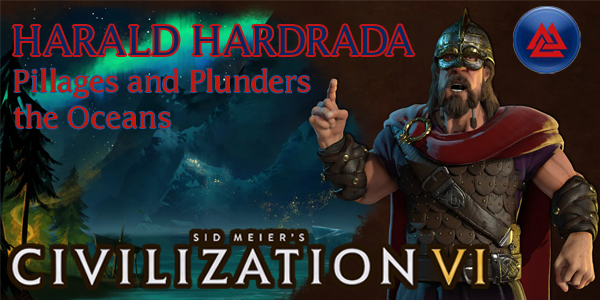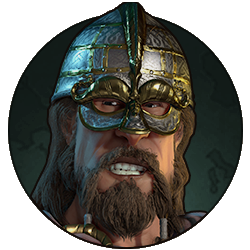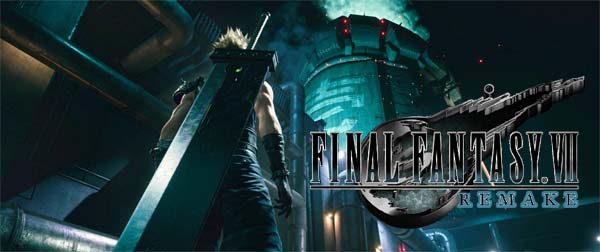So what the heck happened to Picard's dog?! Number One was my favorite character in the premiere, but then he completely disappeared from the entire rest of the show and hasn't even been mentioned since. Were his inclusions in the premiere nothing more than reshoots that were thrown in at the last minute, after much of the rest of the show had been scripted and filmed?
Picard's home was broken into and Picard physically assaulted. The dog was nowhere to be seen. Guess he's not much of a guard dog, huh? I don't even think Picard bothered to ask if Number One was alive after the attack. For all he knew, the Romulan assassins murdered his dog. There's also no tearful "good bye" when Picard has to leave the planet on a potentially dangerous mission, or talk of who might take care of the dog if Picard doesn't return. On the upside, at least the writers didn't kill the dog as an excuse to turn Picard into "space John Wick", in the same fashion that the TNG movies used Picard as a "space John McClane".
Then again, bringing up an idea or character, only to completely drop it by the end of an episode with no real exploration of the concept or character seems to be the modus operandi of Star Trek: Picard.
I gave a lot of leeway to the premiere. I even said that I want to "delight of having just watched a new piece of Star Trek media that I didn't hate". Well that lack of hatred didn't last long. Each episode of Picard just got progressively worse and worse.
If not for the fact that I intended to write a full season review, I would have stopped watching the show by episode 4.
What happened to Picard's dog, Number One? He just disappears from the show after the first episode!
Just as I feared, Star Trek; Picard isn't about the rights of androids or the moral imperative to provide humanitarian relief to refugees (whether those refugees happen to be Romulans or ex-Borg). These things are dominant themes, but they aren't what the plot or story is actually about, nor does it ever become the ultimate message of the show. I think the overall message was supposed to be to not let your fear and prejudice turn you into a genocidal monster, but even that happens in a lazy, eleventh-hour "twist" that I thought made no sense. The actual plot is about conspiracies to cover up the existence of robot Lovecraft monsters from another dimension, and to stop androids from inevitably summoning them to kill all humans. Yep, that's Star Trek canon now. Go figure...

In the meantime, the episode-by-episode (and minute-to-minute) scripting is trying too hard to be like Firefly or any other grungy sci-fi series from the past 20 years. Now, I love Firefly. I also praise The Mandalorian for taking cues from Firefly. But The Mandalorian is set in the Star Wars universe, which was always a grungy universe that contained lovable rogues and scrappy survivors. Star Trek has never been that kind of universe. It's the antithesis of that kind of universe. If I wanted to watch a dark and gritty cowboy / ronin space adventure, then I'll watch The Mandalorian, or I'll go back and watch Firefly or Battlestar Galactica again. Or I'll check out The Expanse or Dark Matter or Altered Carbon or Westworld, or any one of a dozen other sci fi shows that have come and gone in the past 20 years and have borrowed heavily from that same aesthetic. Or I'll play Mass Effect 3, which Picard seems to have blatantly plagerized.
I don't watch Star Trek for that. I watch Star Trek for thought-out, uplifting, cerebral science fiction about an optimistic future that I hope humanity eventually achieves.
... [More]
22e79e8f-9802-45a0-a54d-d7ce9a53f717|2|5.0
Tags:Star Trek, Star Trek: Picard, Jean-Luc Picard, CBS, all access, streaming television, Romulan, Borg, Hugh, Seven of Nine, Icheb, android, civil rights, refugee, future, poverty, racism
Could there be good news on the horizon for Konami's flagship franchises?
Last week, I started seeing an increasing number of websites, videos, and social media posts reporting on several new rumors regarding the Silent Hill, Metal Gear Solid, and Castlevania franchises, which currently are owned by Konami. Konami famously destroyed its credibility as a video game publisher a few years ago when its management had a public feud with Hideo Kojima that resulted in Kojima leaving the company, and the cancellation of the much-hyped Silent Hills game that was teased by the viral P.T. demo exclusive to PS4. Konami then went on to release critical and financial duds in Metal Gear: Survive and Contra: Rogue Corps, and further hindered its public perception among fans of its prestigious video game franchises by releasing a glut of slot and pachinko machines based on the IPs.
It seemed that beloved franchises like Metal Gear, Silent Hill, Castlevania, and Contra were doomed to a slow and painful death at the hands of Konami's ineptitude.
Team Silent back for a reboot?

Rumors started surfacing earlier this year that Konami is working on one or two new entries in the Silent Hill franchise. My initial reaction was that Konami had butchered Metal Gear and Contra with shit games over the last two years, so it was Silent Hill's turn to be dragged through the mud. Castlevania would probably be on deck for the next trainwreck. I took the rumors of new Silent Hill games as unmitigated bad news, expecting to see something along the lines of Silent Hill: Book of Memories and Metal Gear: Survive. However, over the past couple weeks, new rumors have been spreading that have opened up the far-fetched possibility that a new Silent Hill game might not be disastrous after all.
First up was the rumor that Konami might be inviting some of the creative leads from the original Silent Hill game to design and develop a reboot of the original, or a soft reboot of the series as a whole. It started out with rumors that original creature designer Masahiro Ito would be working on a new Silent Hill game, and has since extended to the inclusion of Keiichiro Toyama and Akira Yamaoka (the original director of Silent Hill, and the series long-time music composer and sound director, respectively). The latest rumors suggest that this trio (and possibly more original Team Silent members) are working on a next-gen reboot of the series.
... [More]
9ec5d81e-b242-4ab8-bac6-1b5bce16f1b1|2|4.5
Tags:Silent Hill, Metal Gear, Metal Gear Solid, Castlevania, Konami, Sony, Hideo Kojima, Kojima Productions, P.T., Silent Hills, Metal Gear: Survive, Contra: Rogue Corps

Now that I've covered all the civilizations which are new to the Civ franchise in the Gathering Storm expansion, I'm going to cover the other civs that my Patrons voted on. This guide will be for Viking King Harald Hardrada of Norway. Norway was included in the vanilla release of Civilization VI, but the strategies for playing as them (and all militaristic civs) changed considerably due to the loyalty mechanics introduced in the first expansion, Rise & Fall. The leader, Harald Hardrada, also had his Thunderbolt of the North ability enhanced by the Gathering Storm expansion.

After the fall of the Western Roman Empire, migration out of the former Roman territories lead to a growth in population of the Scandinavian regions as the Medieval Warm Period made the frigid northern lands more amenable to agriculture. As populations grew, resources became scarce and piracy grew. The clans of Scandinavia began creating local or regional assemblies called "things", with the purpose of making laws, settling disputes, and directing the activity of pirates to territories outside of Scandinavia, eventually leading to a seasonal, sea-faring raiding culture. In 793 A.D., Norse raiders pillaged the English Catholic monastery at Lindisfarne, and kick-started the "Age of Vikings". Viking seafarers developed remarkably sea-worthy boats that allowed them to explore and colonize parts of the English isles, Iceland, Greenland, the Mediterranean, and they are even believed to have founded a short-lived colony in modern Canada.
The death of Harald Sigurdsson at the Battle of Stamford Bridge in England is often cited as marking the end of the Viking Age. Harald accumulated great wealth during his youth as a Byzantine Varangian Guard (a group of elite soldiers recruited from Northern Europe to protect the Eastern Roman Emperor). Upon returning to Norway, Harald inherited the throne from his nephew Magnus, and went on to unite Norway and institute a singular coinage economy that allowed Norway to enter into international trade. He earned the nickname "Hardrada" ("the hard ruler") for his stern rule, and propensity for using violence to put down internal opposition. He spent much of his life trying (unsuccessfully) to conquer Denmark before finally turning his attention to his fateful invasion of England.
DISCLAIMER:
Civilization VI is still a "living game". Strategies for the game (and for specific leaders and civs) may change as Firaxis applies balance patches, introduces new features, or expands the game through further DLC or expansion packs, or as the Civ community discovers new strategies or exploits. As such, the following strategy guide may change from time to time. I will try to keep it up-to-date, and will make notations whenever changes are made. I'll also post links in the official 2K forums and CivFanatics, where I'll also report any changes made. If possible and practical, I will try to retain the original content of the strategy for posterity.
I welcome any feedback or suggestions that readers wish to offer. Feel free to post on the linked forums, or by posting a comment at the bottom of the page.
This guide is up to date as of the release of the Gathering Storm expansion's "Red Death" (September 2019) (ver. 1.0.0.341)
Norway is an aggressive ocean-faring civilization that gets strong bonuses for raiding and pillaging. Their naval units can enter ocean tiles earlier in the game, allowing them to partially explore and settle other continents and meet distant civilizations sooner in the game.
[More]
1ac47dd8-bbc7-4458-ba2c-03bc2a17c30c|0|.0
Tags:Sid Meier's Civilization, Civilization VI, Norway, Viking, Harald Hardrada, knarr, thunderbolt of the north, berserker, stave church, Viking longship, last Viking king, navy, ocean, plunder, pillage, religion

I played the demo for the Final Fantasy VII remake this weekend. My hopes for it weren't high. Final Fantasy VII is a classic, and any attempt to remake runs the risk of failing to recapture the magic lightning in the bottle that was the original. Final Fantasy VII is a very dated game, and its mechanics and visuals haven't really held up super well (I'm looking at you: motorcycle, snowboarding, and submarine mini games!). Reproducing the original exactly as it was, but with updated visuals and voice acting would certainly be faithful, but replicating those dated mechanics at higher fidelity might not make for the best of modern gaming experiences.
On the other hand, if you change too much of the beloved original, you run the risk of fans complaining that the remake is "too different" from the original and not faithful. It's a tough tightrope to walk.
Don't get me wrong; it isn't impossible for either method to result in a good game that stands up to the original. In fact, we have fairly recent examples of both approaches being successful. The Shadow of the Colossus remake turned out to be very faithful to the original, even though I felt that it lacked some of the original's bleakness. On the other end of the spectrum, Capcom completely re-invented Resident Evil 2, and (despite my misgivings regarding some mechanical changes) that remake turned out well. Of course, neither of those reached the near pitch perfection that was the faithful remake of the original Resident Evil, but that remake is a rare gem.
Though Resident Evil 2 was a good remake,
I did have considerably misgivings about some of the design departures from the original.
And let's face it, Square-Enix's track record with Final Fantasy over the last 10 to 15 years has been rather shaky. The last Final Fantasy game that I actually liked was Final Fantasy XII. The company has been moving away from the strategy-heavy, party-based battles and deep, robust character customization of generations past, in favor of fast-paced spectacle action using a single character. My beef with the newer games isn't that they are real-time. Both Final Fantasy XII and Final Fantasy X-2 had real-time battle systems, and I enjoyed both of those.
Final Fantsy XIII and XV limited our control to one character.
Rather, I disliked that XIII and XV gave us so little control over the party as a whole. It didn't help that the action was also simple to execute. XIII was criticized as simply requiring the player to "press X to win". XV mostly boiled down to alternating between holding an attack button or holding a defend button. Yeah, there were other commands and nuances to the combat mechanics of both games, but when compared to other action games like Devil May Cry or an actual action-RPG like Dark Souls, I just didn't find the combat in either Final Fantasy game to be very compelling or engaging.
So when I got to the point in the Final Fantasy VII demo in which Barrett joined the party, and I was able to take full control over him, while still being able to pause the game to issue commands to Cloud, I was ecstatic!
... [More]
Big news in football video gaming earlier today, which was that 2K and the NFL announced a multi-year deal that allows 2K to publish NFL-licensed football video games. The first such game is expected to release in 2021.


The catch: the license only allows 2K to produce "non-simulation" games, so as not to compete directly with Madden. So don't expect to see NFL 2K22 next August. Instead, we're more likely to see something along the lines of NFL Blitz or NFL Street.
Now, if you ask me, EA already makes a "non-simulation" football game. The main driver of EA's game is the loot-box-fueled Ultimate Team, which is about as "non-simulation" as you can get. And while EA focuses attention on new arcade modes like Draft Champions and Superstar KO, while continuing to neglect Franchise mode, the quality of Madden as a simulation experience has only continued to slip.

In any case, this news was a shock to me. I had no idea a deal between 2K and the NFL was even in the works. In fact, if 2K was going to get back into producing and/or developing licensed football video games, I thought for sure that it would be via an XFL license! 2K already publishes WWE Wrestling games (which have been terrible of late, by the way), so 2K and Vince McMahon already have a working relationship. The XFL has shown an interest since its inception to license its rights out to a video game, but so far, no such deal has surfaced.
If we're lucky, maybe 2K will do both an arcade NFL game and a simulation XFL game, so that when the NFL eventually wises up and gives them the rights to do a simulation game, they'll already have an engine ready to go. In fact (according to Polygon), the NFL's current licensing arrangement with EA expires at the end of the 2021 / 2022 NFL season. So it is entirely possible that the NFL plans on granting simulation rights to 2K after that. This "non-simulation" license deal might just be the NFL's way of allowing 2K to get a headstart so that they can hit the ground rolling with a full NFL 2K23 releasing in fall of 2022. Fingers crossed...
... [More]
|

| 12 | | | | | | | 60 | | 11 | | | | | | | 55 | | 10 | | | | | | | 50 | | 09 | | | | | | | 45 | | 08 | | | | | | | 40 | | 07 | | | | | | | 35 | | 06 | | | | | | | 30 | | 05 | | | | | | | 25 | | 04 | | | | | | | 20 | | 03 | | | | | | | 15 | | 02 | | | | | | | 10 | | 01 | | | | | | | 05 |
|